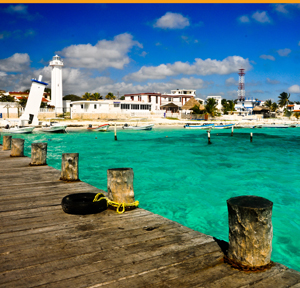Offshore
Coalition Government Likely After Cayman Islands Election, Polls Draw Praise

The Cayman Islands, a jurisdiction facing continual pressures due its status as a so-called tax haven, was looking at having a coalition administration after the People’s Progressive Movement won national elections but fell short of an outright majority. Meanwhile, election observers praised the nature of the polling process.
The People's Progressive Movement, won nine of the 18 available assembly seats, one short of the necessary number needed for an overall majority. To lead the British Overseas Territory, the PPM must form a coalition government, with the party's leader, Alden McLaughlin, the likely next premier, according to political analysts.
"In our view the 2013 general elections in the Cayman Islands met the international standards for democratic, genuine and transparent elections and the results truly reflect the will of the people. We commend the people of the Cayman Islands for the way these elections were conducted. The peaceful election process allowed different opinions to be expressed freely. The high voters’ turnout is also a very positive sign and it shows commitment of the Caymanian people to the principles of democracy," the Commonwealth Parliamentary Association said in a report about the election process.
The elections are the third to have been held in the Caribbean jurisdiction since political parties were established.
The Cayman Islands is one of the world's most famous offshore financial centres and the fifth-largest banking centre in the world, with over $1.5 trillion in liabilities.
However, the territory, noted as a registration hub for thousands of hedge funds, has been criticised for not being more transparent over its financial system.
Earlier this week, the UK urged the Cayman Islands and other overseas territories to "get their house in order" over the sharing of tax information.
The British prime minister, David Cameron, has written to UK offshore territories and other self-governing regions, calling on them to sign up to international protocols to share information and improve transparency in their banking systems.
As part of its ongoing crackdown on offshore tax evasion, the UK's HM Revenue and Customs is currently working with the US and Australian tax administrations to investigate hundreds of accountants, lawyers and other professional advisors.
The three countries have obtained a substantial amount of data which reveals extensive use of complex offshore structures to conceal assets held by wealthy individuals and companies. Early results show the use of companies and trusts in Singapore, the British Virgin Islands, the Cayman Islands, and the Cook Islands.
Earlier this year, the Cayman Islands signed an agreement with the G5 nations, which comprises the UK, France, Germany, Italy and Spain, to automatically reveal the details of offshore accounts as part of the clampdown on tax evasion.
Under the agreement, much greater levels of information about bank accounts will be exchanged bilaterally and will include names, addresses, dates of birth, account numbers, account balances and details of payments made into those accounts. The deal also includes information about entities such as trusts.
